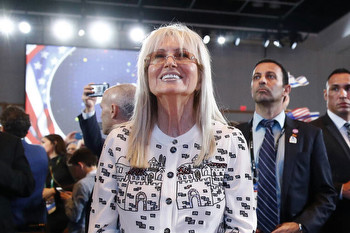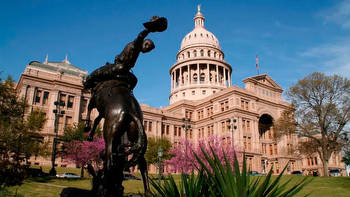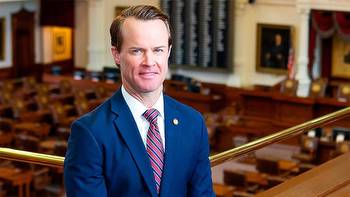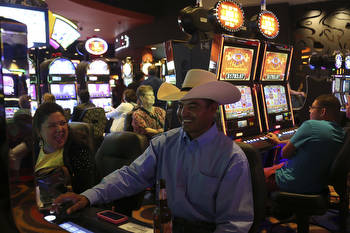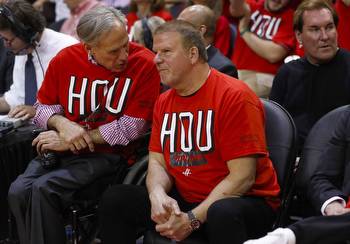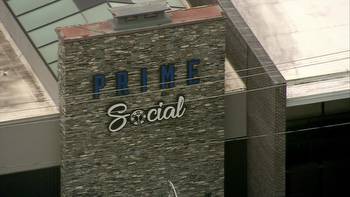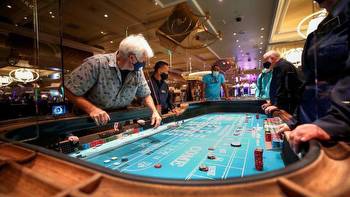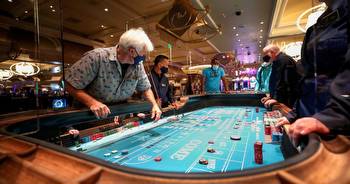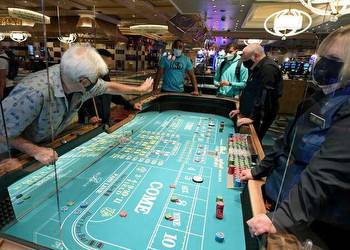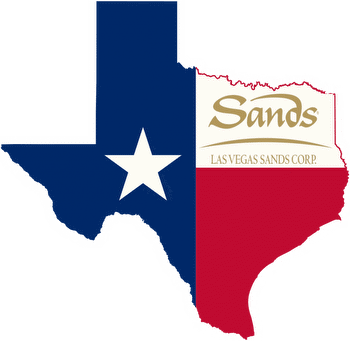Las Vegas Sands went all in on legalizing casinos in Texas. Here's why the multimillion-dollar effort did not make it far this session.

In its effort to bring casinos to Texas, Las Vegas Sands — the gaming empire started by the late Republican megadonor Sheldon Adelson — hired an army of lobbyists and spent millions more on TV ads, all after an election season in which Adelson’s largesse was key in helping the state’s Republicans remain in power.
But the gargantuan undertaking ultimately did not make it far at the Capitol, with Sands’ legislation failing to make it to the floor of either chamber and not even receiving a committee hearing in the Senate.
The legislation — which required voter approval — would have brought a monumental expansion of gambling to Texas, which has some of the most restrictive gaming laws in the country. The centerpiece of the Las Vegas Sands proposal was to build “destination resorts” with casino gambling in the state’s four biggest metropolitan areas.
The company had insisted it was committed to Texas for the long term. But people involved in the effort point to at least a few factors that stood in the way of more progress in their debut session.
There was the difficulty breaking through in a session dominated by the coronavirus pandemic, the winter weather crisis and Republican leaders’ contentious priorities, which are now leading to at least one special session. There was Lt. Gov. Dan Patrick’s perceived opposition to expanding gambling that made Senate progress a tall order. And there was the relatively late filing of the Sands-supported legislation, giving lawmakers less time than usual to digest what would be a hugely consequential change to the Texas economy.
While Sands took pains to clarify that casinos would not be a fiscal cure-all for Texas, some supporters of the proposal said they were nonetheless hampered when the state’s budget projections turned out better than expected, decreasing curiosity in new revenue streams.
“Something this big and complex takes time, and we’re only up here five months of every two years,” said Rep. John Kuempel, R-Seguin, who carried the Sands-backed bill in the House. “These things take time.”
Las Vegas Sands ended up spending as much as $6.3 million on lobbying at the Capitol, according to state records, plus what the company pegged as at least $2 million on a statewide ad campaign. It is likely that the company’s total spending topped $10 million, given the number of weeks that the company stayed on the air in the state’s most expensive media markets.
It was easily the biggest campaign to expand gambling in Texas that the state has seen in a long time.
As the session wound down and it became clear that Sands’ House bill would not advance, Sands issued a statement in which it claimed it made “great strides” this session and promised to “continue to build community support across the state to ultimately turn this vision into a reality.” Sure enough, the company continued airing TV ads promoting its plan in the weeks after the proposal’s fate had crystallized.
One Republican lawmaker who sits on the House committee where the bill died had a less optimistic outlook.
“It fell really flat,” Rep. Matt Shaheen of Plano said of Sands’ overall push this past session. “It just didn’t go anywhere. It was a bad investment on Sands’ behalf, and I think any future investments will continue to be a bad investment.”
Making waves in Austin
Sands first started catching the attention of Capitol observers late last year when its lobbyist registrations with the Texas Ethics Commission began to swell — and included some of the biggest names in Austin influence circles. For example, the company hired Gavin Massingill, then the chief of staff to outgoing House Speaker Dennis Bonnen, R-Angleton, to lead its lobbying in Austin.
Even before the legislation had been filed, the company made its intentions clear.
“We view Texas as a worldwide destination and one of the top potential markets in the entire world,” Andy Abboud, Sands’ senior vice president of government relations, said during a December conference hosted by the Texas Taxpayers and Research Association. “Texas is considered the biggest plum still waiting to be out there in the history of hospitality and gaming.”
Months earlier, Adelson had taken an outsized interest in Texas politics, joining with his wife, Miriam, to distinguish themselves as top contributors to House Republicans’ successful fight to preserve their majority. In September, the couple gave $4.5 million to a Texas account affiliated with the Republican State Leadership Committee, the chief national GOP group involved in state legislative races.
Adelson also closed out the election season by giving $500,000 to Gov. Greg Abbott, registering as the governor’s second-largest donor during the second half of 2020. And once it became clear after the election that Rep. Dade Phelan, R-Beaumont, was poised to be the next leader of the Texas House, Adelson cut a check to him for $25,000.
Those would end up being some of the last political contributions of Adelson’s life. On Jan. 12, the first day of the legislative session, Las Vegas Sands announced he had died, citing complications from non-Hodgkin’s lymphoma.
Abbott swiftly commemorated Adelson in a statement calling him a “remarkable American whose legendary business savvy and determination helped him rise from humble beginnings to a titan of his trade.”
The death of Adelson — plus the news of Texas’ smaller-than-expected budget shortfall around the same time — left some wondering if Sands was losing momentum in the state before it could even unveil its legislation. But the company kept adding lobbyists in Austin, and in a statement shortly after Adelson’s death, Abboud said the company was looking “forward to working with lawmakers this session.”
Beginning of session
With Sands’ Texas ambitions becoming more widely known, the state’s top leaders started fielding questions about it. In interviews during the opening weeks of session, the new speaker, Phelan, warned Sands against relying on the argument that casinos would boost state revenue — advice that the company was already taking to heart in its public comments about Texas.
Otherwise, Phelan expressed openness to the concept, noting he represents a district along the border with Louisiana, where casino gambling is legal.
“All my constituents gamble,” Phelan said at the time. “It’s not a big deal to me.”
Abbott also kept an open mind publicly, despite saying in 2015 that he “wholeheartedly” supported the gaming restrictions in Texas. Asked in a February interview about the Sands effort, Abbott said he wanted to hear from lawmakers about how their constituents felt about casinos.
Patrick would end up having the most consequential comments about Sands’ plans. In a Feb. 9 interview with Lubbock radio host Chad Hasty, Patrick threw cold water on the push, saying he has “never been in favor of” expanding gambling and that the Senate is “nowhere close to having the votes for it.” The issue, he predicted, “would not see the light of day this session.”
Sands was undeterred.
On March 9 — three days before the bill-filing deadline — Sands’ legislation was finally filed. It was being carried by Kuempel in the House and by Sen. Carol Alvarado, D-Houston, in the Senate. Alvarado is the chair of the Senate Democratic Caucus.
In the House, the legislation ended up attracting a bipartisan group of four joint authors: Reps. Toni Rose, D-Dallas; Charlie Geren, R-Fort Worth; Joe Moody, D-El Paso; and Sam Harless, R-Houston. They were notable gets for Sands — Rose is the first vice chair of the House Democratic Caucus; Geren is a veteran member who previously chaired the powerful Administration Committee; and Moody is serving his second term as speaker pro tem.
But with Patrick’s position seemingly clear in the Senate, additional support there was sparse. Only two senators signed up as co-authors, and they were both Democrats — Sens. Juan “Chuy” Hinojosa of McAllen and Beverly Powell of Burleson — which was not promising in a chamber where Republicans hold a supermajority and can solely control which bills make it to the floor.
The legislation got a hearing in the House but was left pending in the committee afterward and was never brought back up for a vote before the May 10 deadline for committees to advance such proposals.
A Republican on the committee who supported the legislation, Harless, said he “thought from the get-go it was gonna be a multi-session effort.”
Still, Harless added, “I definitely think it’s gonna be in our hands to get it out of the House first.”
Las Vegas Sands’ Senate legislation never got a hearing in that chamber’s State Affairs Committee, which is chaired by Sen. Bryan Hughes, R-Mineola. Hughes did not respond to a message seeking comment for this story.
Whether Patrick, the Senate’s presiding officer, can be moved remains to be seen. His office did not respond to a request for comment for this story, but some casino supporters believe he is not as dug in against it as some would believe.
“I don’t think he had an appetite for it this session,” Alvarado said. “I think he feels like eventually it’s coming to Texas, but it wasn’t gonna happen this session.”
Disclosure: The Texas Taxpayers and Research Association has been a financial supporter of The Texas Tribune, a nonprofit, nonpartisan news organization that is funded in part by donations from members, foundations and corporate sponsors.
The Texas Tribune is a member-supported, nonpartisan newsroom informing and engaging Texans on state politics and policy. Learn more at texastribune.org.










